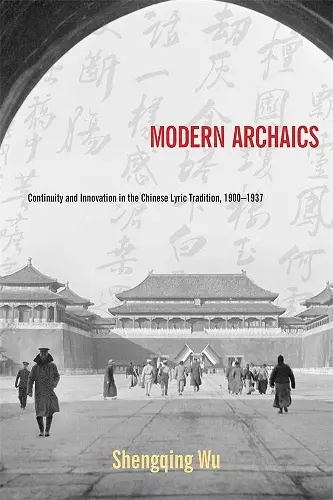Modern Archaics
Continuity and Innovation in the Chinese Lyric Tradition, 1900–1937
Format:Hardback
Publisher:Harvard University, Asia Center
Published:20th Jan '14
Currently unavailable, and unfortunately no date known when it will be back

After the collapse of the Qing dynasty in 1911 and the rise of a vernacular language movement, most scholars and writers declared the classical Chinese poetic tradition to be dead. But how could a longstanding high poetic form simply grind to a halt, even in the face of tumultuous social change? In this groundbreaking book, Shengqing Wu explores the transformation of Chinese classical-style poetry in the early twentieth century. Drawing on extensive archival research into the poetry collections and literary journals of two generations of poets and critics, Wu discusses the continuing significance of the classical form with its densely allusive and intricately wrought style. She combines close readings of poems with a depiction of the cultural practices their authors participated in, including poetry gatherings, the use of mass media, international travel, and translation, to show how the lyrical tradition was a dynamic force fully capable of engaging with modernity. By examining the works and activities of previously neglected poets who maintained their commitment to traditional aesthetic ideals, Modern Archaics illuminates the splendor of Chinese lyricism and highlights the mutually transformative power of the modern and the archaic.
A broad reassessment of the place of classical poetry in early twentieth-century China. Shengqing Wu shows how the old lyrical forms were turned to new purposes to help negotiate China’s emergent modernity. This is a story about modern Chinese literature that has not been told before. -- Ronald Egan, Stanford University
Modern Archaics challenges the conventional wisdom that dichotomizes modern and traditional forms of writing. By examining classical-style poetry written at a time of radical anti-traditionalism, Shengqing Wu ushers us into a world beyond the conventional territory of the modern. She argues that the writing and appraisal of classical-style poetry carried on with remarkable vigor and variety during the century of modern literature, and that at crucial historical junctures, the genre exerted an enormous power where new literature failed in representing modern China in crisis. Wu examines classical-style verse and its transformation in terms of stylistic experimentation, thematic contestation, and cultural production. This is a field yet to be explored by scholars and students in modern Chinese literature and culture; as the first of its kind, Modern Archaics is bound to draw attention. -- David Der-wei Wang, Harvard University
- Nominated for Joseph Levenson Book Prize 2015
- Nominated for MLA Prize for a First Book 2013
ISBN: 9780674726673
Dimensions: unknown
Weight: unknown
456 pages